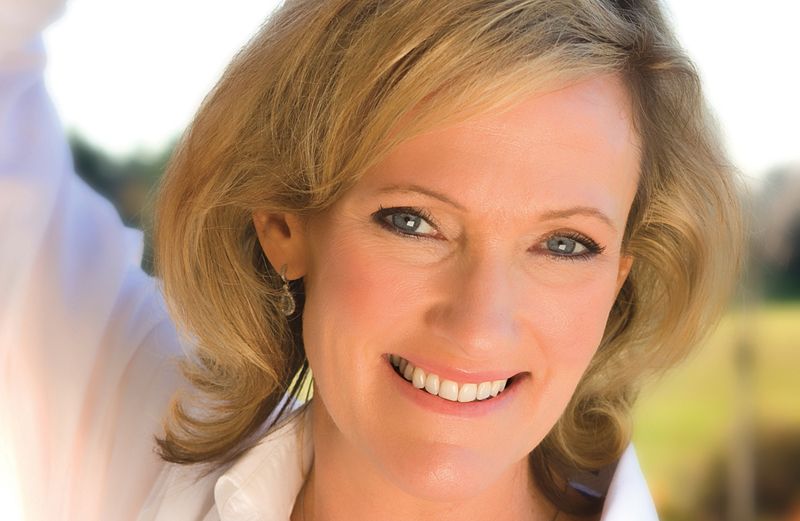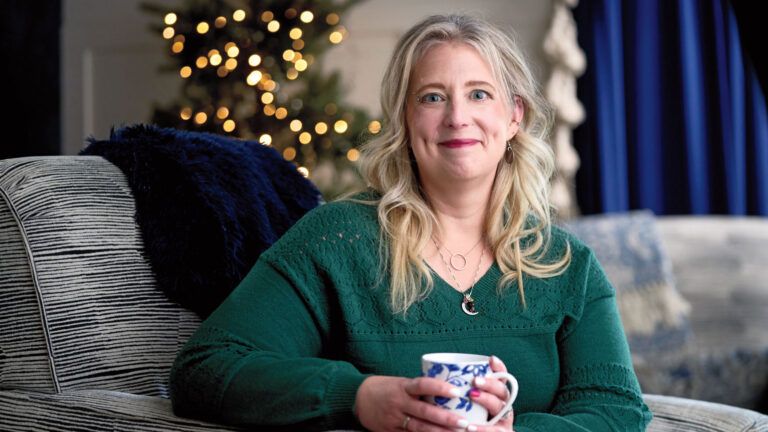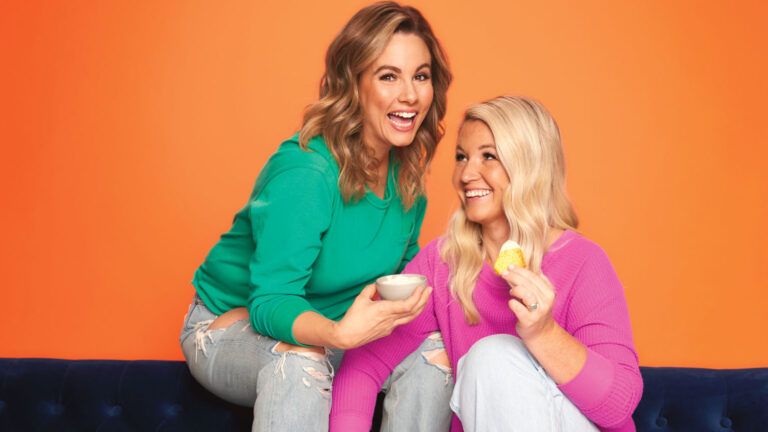The following story first appeared on Bookish.com, and is used here with permission.
Karen Kingsbury's recent bestselling novel, "The Bridge," is arguably her most bookish novel to date—the story is set in a bookstore. And while it's a work of fiction, Kingsbury has previously used inspiration from her personal life in her novels, even going so far as to use her daughter Kelsey as the cover model for her Bailey Flanigan series. In the Kingsbury's upcoming novel, "The Chance," the author once again focuses on the power of words as she tells the story of a couple that writes letters to each other. Kingsbury has talked about her early career as a journalist and author—now she reveals the person who inspired her to work with words in this exclusive essay for Bookish.
I gave up the idea of being a writer the summer before I started college.
By then I’d been writing since I was five years old. Dr. Seuss had opened the world of words to me and the Christmas of my kindergarten year I memorized "How the Grinch Stole Christmas." I couldn’t get enough of stories and storytelling. My little friends wanted dolls and dress-up clothes that year. I wanted paper. Lined paper. The kind that came bound in a book, soft and off white with faint blue lines, paper screaming for a little girl to start at page one and dream in the open spaces.
Childhood passed and a box of short stories about horses and princesses and magical lands gave way to my days at Columbus Middle School in the San Fernando Valley. I wrote for the Full Sail magazine and by the time I was in eighth grade, half the annual publication was written by me.
My dad would read one of my poems or stories and his eyes would well up. "That’s beautiful, honey," he’d tell me. "One day all the world will know what a gift God has given you."
Sometimes I’d dream with my parents about being a novelist, writing books that everyone might read. My dad was always sure it would happen. "Someone has to be the next bestselling author," he’d tell me. "It might as well be you." They were words I held on to, words that encouraged me through high school to keep believing that writing was my calling.
But somewhere along the months of my senior year, I became disillusioned. Writing books seemed like a far-off fairy tale, like something I would’ve written about when I was a kid. I became more aware of the crazy injustice in this world—bad guys getting back out on the street and doing harm again and again. I changed my mind sometime that spring.
"I’m going to be a lawyer," I told my parents. "I’m not sure about writing anymore."
My dad’s face fell, but he kept his smile. "Whatever you do, you’ll be brilliant at it." He hugged me and gave a firm nod. "Everything will work out the way it’s supposed to."
More little words.
I began taking classes at Pierce Junior College—all my parents could afford—bent on a legal profession. But one of my first classes was Journalism 100—an option that met my freshman English requirement. It would be an easy "A" so I could focus on classes I wasn’t strong in—math and science. A few weeks into the semester, the professor assigned us a story about a fictitious apartment fire. He gave us the facts and we had a few days to write a compelling news story. The class met in an auditorium with nearly 100 kids so when I turned in my story I didn’t expect much feedback.
Professor Bob Scheibel taught Journalism 100 that semester for Pierce College. The man was a gruff veteran journalist with wild gray hair and dark glasses that slid down his nose. He didn’t talk, he barked, and from the beginning his expectations were clear. "One gross factual error on your news story and you’ll fail the assignment." He meant it. I remember turning in that first paper sure that I had the facts right. No automatic fail for me.
But a few days after, toward the end of class, Bob Scheibel put his hands on his hips and stared down the kids in the auditorium. "Karen Kingsbury?" he pushed his glasses up and scanned the room. "Raise your hand!"
Adrenaline rushed through my veins. I raised my hand, my cheeks suddenly red-hot as every face in the room turned my direction. I could barely speak. "I’m here."
"Good!" The word was a guttural shout. "You’ll come up and talk to me after class lets out."
He spoke a few closing remarks for the class but I heard none of them. Questions raced through my mind, keeping time with my pounding heart. What had I done wrong? Had I gotten the facts mixed up? Did I miss something critical in the details? By the time the class let out five minutes later, I felt sick to my stomach. Slowly, I made my way to the front of the room where Professor Scheibel was organizing a stack of papers.
I stood there, my knees knocking. "Sir? You wanted to speak to me?"
The professor spun around, his look intense. He took three quick steps closer to me and stopped. His eyes met mine with great seriousness. He pushed his glasses back up his nose again. "You’re Karen Kingsbury?"
"Yes, sir." I wondered if I might faint right there at the front of the classroom.
He pointed at me. "Two things." There was no hesitation. "First, you will never, ever stop writing." The hint of a smile lifted the corners of his lips, though his tone stayed strong. "Second, you will report to my office tomorrow morning. I’m placing you on staff of the school newspaper."
I blinked a few times. "Yes, sir."
"Karen," his voice softened just a little. "You are a very, very good writer. Don’t ever forget that."
I left Journalism 100 that day a different person.
My back felt a little straighter, my steps came a little quicker. I was a writer. Professor Scheibel had told me so. The next day I did what he said. I reported to his office and was led to the staff room where students produced the school’s award-winning newspaper. Professor Scheibel handed me a press credential and a feature assignment.
My head spun with the craziness of it all, but my parents weren’t surprised. They had been praying that I would come to my senses, that I might realize sooner than later that I couldn’t just stop writing. There would be other lawyers, but God had created me to tell stories, to share words with people that might touch their hearts and change their lives.
Two years ago, after my first #1 New York Times bestseller, I found Bob Scheibel—retired and in his twilight years still living in the San Fernando Valley. I called him and he easily remembered me. He congratulated me on my writing success, and I told him my memory of that long ago day. "I wouldn’t be a writer if you hadn’t said those words," I told him. "Thank you for caring."
I know Professor Scheibel was touched, because a slight sniffling sound came over the line and after a long moment he thanked me. "I had no idea."
That’s the thing with little words. The words my parents said to me growing up, the words Bob Scheibel said to me that day in his Journalism 100 class—they changed my life. We never know the difference we might make if we take the time to encourage someone. You’re reading this because it’s true.
Little words can make a big difference.
The other day, a young girl named Chloe came up to me at one of my events, eyes wide. "I want to be a novelist like you one day," she told me."
I just smiled and said the words that are still as familiar as my name. "Well, Chloe, someone has to be the next bestselling author! It might as well be you."
Little words.





